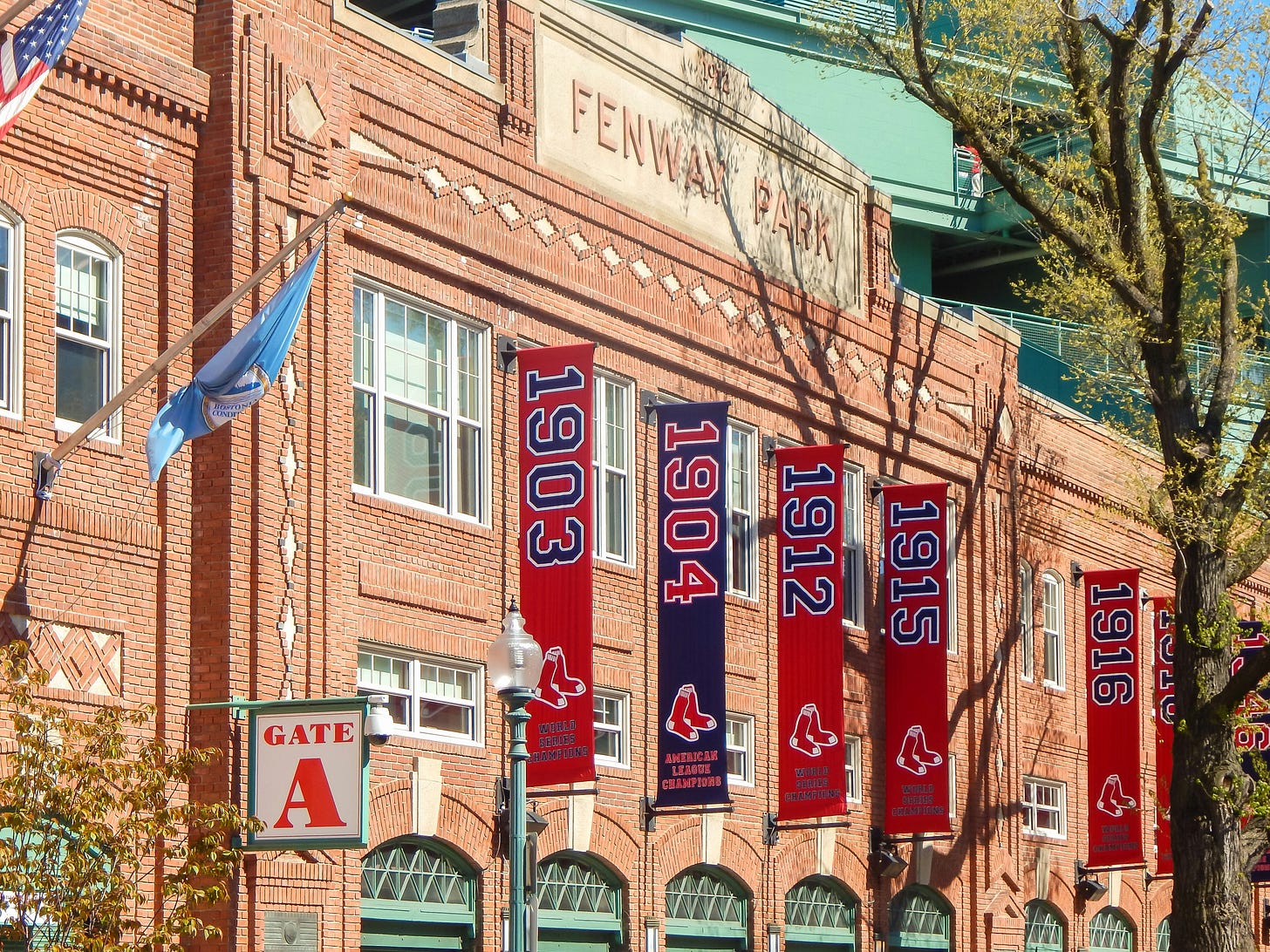The Ghost of an Argument
Watching Sox–Yanks is to glimpse America’s past quarrels, carried forward into the present.

I watched the Red Sox and Yankees last night and, like always, found myself drifting from the box score into history. Garrett Crochet stretched his arm on the mound, Boston scraped out a win, and I sat there thinking not just about a Wild Card Series but about centuries of rivalry between two cities whose conflict once shaped America’s destiny.
Baseball is the mirror, the present tense of an old quarrel.
Colonial Foundations: Sermons vs. Ledgers
Boston and New York have always been rivals because they were born in different ways. Boston emerged from the Puritan pulpit with sermons, schools, and a steadfast conviction that society ought to be governed by moral principles. New York began as a Dutch countinghouse, a commercial, cosmopolitan, and pragmatic enterprise from the start. That difference defined their colonial roles. Boston became the conscience of rebellion; there was Sam Adams, the Sons of Liberty, and the minutemen. New York became Britain’s imperial headquarters, General Thomas Gage planting troops in Manhattan to divide North from South, even hosting Tory banquets while Boston seethed with revolutionary fire.
The Revolutionary War revealed the divide in full as Boston was seething with rebellion, and New York served as the British Army’s safe haven. Aggarwala’s work on New York as an imperial headquarters makes it clear—New York’s geography and commerce made it indispensable to the British. Still, its loyalty was always suspect, its people divided between the Crown and the continent. It was, even then, a city of convenience and calculation, not conscience.
The Yankee Invasion
After independence, something ironic happened. Yankees poured into New York in what historian David Ellis called a “Yankee invasion.” From 1783 to 1850, as much as two-thirds of New York’s population had roots in New England. They came by sloop and sleigh, on turnpikes and carts, clearing forests, tilling soil, building towns. They brought Puritan thrift and industry with them, and they remade New York in their own image.
This created a cultural fusion as Boston’s blood ran in New York’s veins. But it also sharpened tensions. The Dutch-descended families of old New York resisted, seeing the Yankees as intruders. The result was a state both wealthy and divided, growing into the “Empire State” by absorbing Boston’s industriousness while overshadowing Boston itself in scale.
The Empire State vs. the City on a Hill
The 19th century settled the economic rivalry. Boston may have birthed the revolution, but New York built an empire. The Erie Canal, completed in 1825, marked a significant milestone. Suddenly, goods could flow from the Midwest to Manhattan’s harbor, cementing New York’s dominance. By 1790, it was already America’s largest city, and by mid-century, with Wall Street rising, it was uncatchable.
Boston responded by leaning harder into culture and conscience. The Brahmins built Harvard, wrote literature, and cultivated reformist zeal. Ralph Waldo Emerson, Henry David Thoreau, and abolitionists were the intellectual fire that kept Boston important. But New York built banks, newspapers, and Broadway. One city styled itself as America’s conscience, while the other town was its literal greenback.
And the rivalry became not just local but continental: who defines the nation, the sermon, or the ledger?





